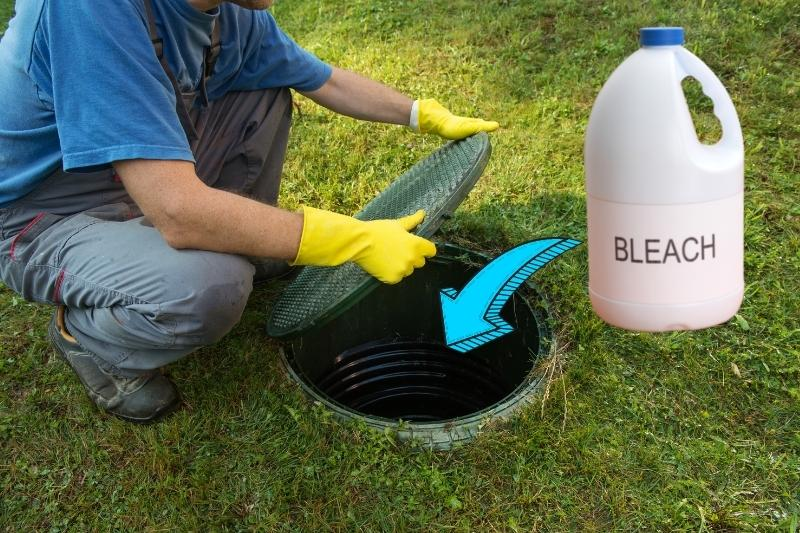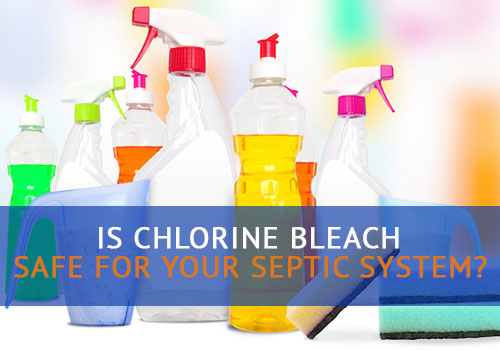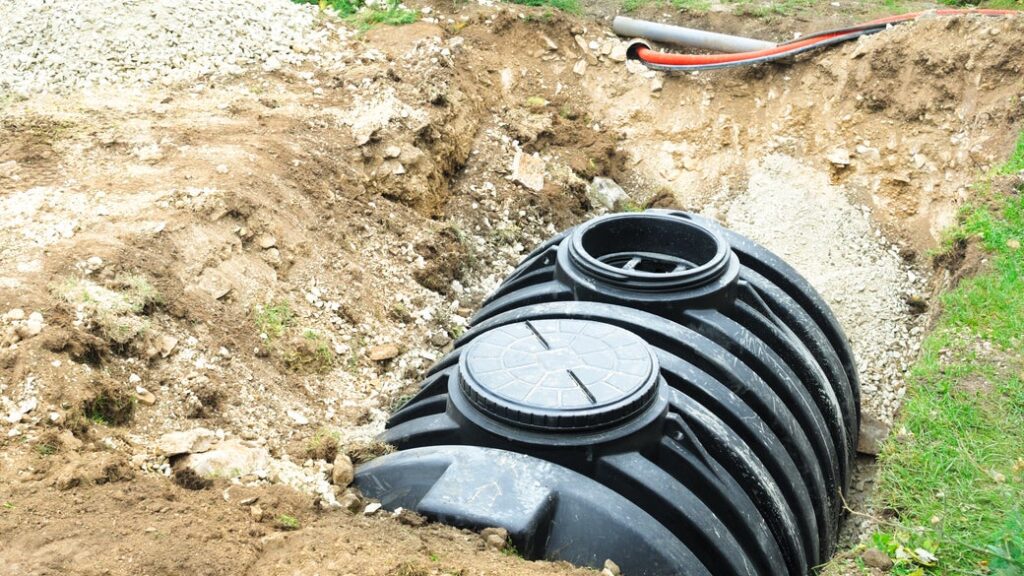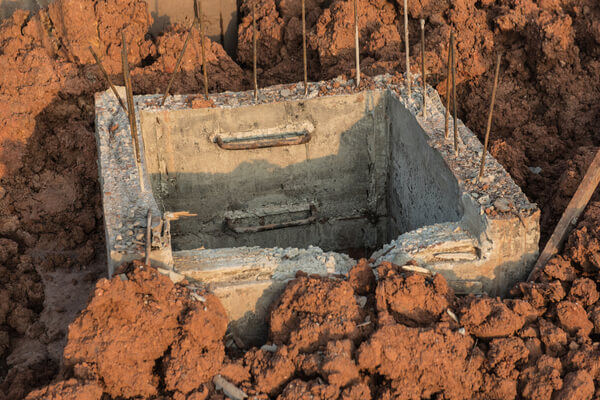If you rely on a septic system for waste disposal, you may have wondered whether it’s safe to use bleach. After all, bleach is a commonly used household cleaner that many people swear by. However, its strong and powerful properties may cause concern when it comes to the delicate balance of a septic system. In this article, we will explore the potential effects of bleach on septic systems and provide guidance on how to use it responsibly, ensuring both cleanliness and the longevity of your septic system.

Impacts of bleach on septic systems
How does bleach affect septic systems?
Using bleach in septic systems can have both immediate and long-term impacts. Bleach is a strong chemical that kills bacteria, including the beneficial bacteria that are crucial to the proper functioning of a septic system. When bleach is flushed or rinsed down the drain, it goes into the septic tank where it can disrupt the balance of bacteria. This can lead to issues such as decreased wastewater treatment efficiency and a higher chance of septic system failures.
Chemical reactions with bleach and septic systems
Bleach undergoes chemical reactions when it comes into contact with the substances present in a septic system. The active ingredient in bleach, sodium hypochlorite, reacts with organic matter and can produce harmful chlorine gas. This gas can be detrimental to the health of the septic tank and the surrounding soil. Additionally, bleach can also react with ammonia, commonly found in urine, to form toxic chloramine gas. These chemical reactions can further damage the septic system and pose a threat to human health.
Potential damage to the septic tank
The use of bleach in septic systems can lead to damage in various ways. The excessive use of bleach can weaken the structural integrity of the septic tank. The corrosive nature of bleach can degrade the concrete or steel components of the tank, causing cracks, leaks, and even complete failure. These damages can be costly to repair and may require the replacement of the entire septic system. It is important to consider the long-term consequences of using bleach and take preventative measures to protect the septic tank.
Effects on the balance of beneficial bacteria in the septic system
One of the key functions of a septic system is the breakdown of organic matter by beneficial bacteria. These bacteria help to break down solids and convert them into gases and liquids that can be safely released into the environment. However, the use of bleach can disrupt this delicate balance of bacteria. The strong antimicrobial properties of bleach kill off the beneficial bacteria, reducing the system’s ability to efficiently decompose waste. This can result in an accumulation of solids, leading to clogs, backups, and potentially costly repairs.
Alternatives to bleach for cleaning in septic systems
Natural cleaning agents
Fortunately, there are several natural cleaning agents that can effectively clean without causing harm to septic systems. Vinegar, lemon juice, baking soda, and hydrogen peroxide are all excellent alternatives to bleach. These substances have antimicrobial properties and can help remove stains, odors, and grease. They are also less likely to disrupt the balance of bacteria in the septic system. Incorporating these natural cleaning agents into your cleaning routine can help maintain a healthy septic system while still achieving a clean and fresh home.
Eco-friendly cleaning products
In addition to natural cleaning agents, there are also eco-friendly cleaning products available on the market. These products are specifically designed to be safe for septic systems and the environment. They are free from harsh chemicals and are biodegradable, allowing them to break down easily once they enter the septic tank. Using eco-friendly cleaning products not only protects your septic system but also contributes to a more sustainable and eco-conscious lifestyle.

Proper bleach usage with septic systems
Limited and occasional use
While it is generally recommended to avoid using bleach in septic systems, if you still choose to use it, proper usage is essential. Bleach should be used in limited quantities and only on an occasional basis. Avoid using bleach for everyday cleaning tasks and reserve it for tougher stains or disinfection when absolutely necessary. By minimizing bleach usage, you can help reduce the potential damage to your septic system.
Dilution of bleach before disposal
When using bleach, it is important to dilute it before disposing of it down the drain. This can be done by adding water to the bleach solution, making it less concentrated. This dilution process helps to minimize the negative impacts of bleach on the septic system. By diluting bleach, you are essentially reducing the amount of chlorine and other harmful chemicals that enter the septic tank, which is crucial for maintaining a healthy balance of bacteria.
Regular maintenance and pumping of the septic tank
Proper and regular maintenance of the septic tank is crucial to its overall health and longevity. Regular pumping of the septic tank helps to remove accumulated solids and allows for the growth of beneficial bacteria. This ongoing maintenance routine can help mitigate any potential damage caused by the occasional use of bleach. By ensuring that the septic tank is functioning properly and has a healthy bacterial balance, you can minimize the long-term impacts of bleach on the septic system.
Safe bleach usage practices
Proper dosage of bleach for cleaning
When using bleach in cleaning, it is important to use the proper dosage. Using more bleach than necessary does not necessarily lead to a cleaner result, but it does increase the risks to your septic system. Follow the instructions on the bleach bottle and use the recommended amount for each cleaning task. By using the appropriate dosage, you can effectively clean while minimizing the potential damage to your septic system.
Reducing contact time with surfaces
To further minimize the impact of bleach on your septic system, reduce the contact time between bleach and surfaces. After applying bleach, promptly rinse the area with water to remove any residue. This helps to limit the amount of bleach that goes down the drain and into the septic system. Additionally, minimizing the contact time also reduces the chances of bleach reacting with other substances in the septic system, which can lead to further damage.
Minimizing bleach discharge into the septic system
In addition to diluting bleach before disposal, there are other steps you can take to minimize the discharge of bleach into the septic system. Consider using a separate drain or disposal method for bleach-containing wastewater. For example, you can collect and dispose of bleach water in a designated wastewater treatment system or have it professionally removed. By reducing the amount of bleach that enters the septic system, you can help protect its delicate balance and avoid potential damage.

Signs of bleach damage to a septic system
Unusual odors from the septic system
One of the signs that bleach is causing damage to your septic system is the presence of unusual odors. If you start noticing foul smells coming from your drains or around the septic tank area, it could be an indication that the balance of bacteria in your septic system has been disrupted. The use of bleach may have killed off beneficial bacteria, leading to an accumulation of solids and the production of unpleasant odors. If you experience such odors, it is important to seek professional advice to assess the situation and take appropriate measures.
Slow drainage or blockages in pipes
Another sign of bleach damage to a septic system is slow drainage or blockages in pipes. If you notice that your sinks, toilets, or showers are draining slowly or if you experience frequent backups, it could be a result of bleach-related issues. The disruption of the bacterial balance caused by bleach can lead to the accumulation of solids in the pipes, causing clogs and impairing the flow of wastewater. If you encounter these issues, it is best to consult a professional to determine the cause and address any potential damage.
Excessive growth of algae in drain fields
Excessive growth of algae in drain fields is another potential sign of bleach damage to a septic system. Drain fields function to distribute treated wastewater into the soil, allowing it to be naturally filtered and absorbed. However, the use of bleach can disrupt the delicate ecosystem in the drain fields, promoting the growth of algae. Algae growth can result in clogged pores in the soil, limiting the wastewater absorption capacity of the drain field. If you notice unusual algae growth in your drain field, it is important to take action promptly to prevent further damage to your septic system.
Seeking professional advice
Consulting a septic system expert
If you have concerns about the use of bleach in your septic system or have noticed signs of potential damage, it is highly recommended to seek professional advice from a septic system expert. A trained professional can assess the condition of your septic system, identify any existing issues, and provide guidance on the most suitable course of action. They can also offer insights into septic-safe cleaning practices and recommend alternative cleaning methods that will have minimal impact on the septic system.
Septic-safe cleaning practices recommended by professionals
To ensure the health and longevity of your septic system, it is beneficial to follow septic-safe cleaning practices recommended by professionals. These practices include minimizing or avoiding the use of bleach, using natural cleaning agents or eco-friendly cleaning products, and adopting preventative maintenance measures. By adopting these practices, you can maintain a clean and hygienic home without compromising the integrity of your septic system.

Conclusion
In conclusion, the use of bleach in septic systems can have significant impacts on their health and functionality. Bleach can disrupt the balance of beneficial bacteria and cause chemical reactions that can damage the septic tank and the surrounding soil. However, there are alternatives to bleach for cleaning in septic systems, such as natural cleaning agents and eco-friendly cleaning products, which can help maintain a healthy septic system. If you choose to use bleach, proper usage practices, such as limited and occasional use, dilution before disposal, and regular maintenance, can help minimize its impact. If you notice signs of bleach damage, seeking professional advice and following septic-safe cleaning practices are recommended. By being mindful of the potential impacts of bleach and taking appropriate measures, you can ensure the proper functioning and longevity of your septic system.
